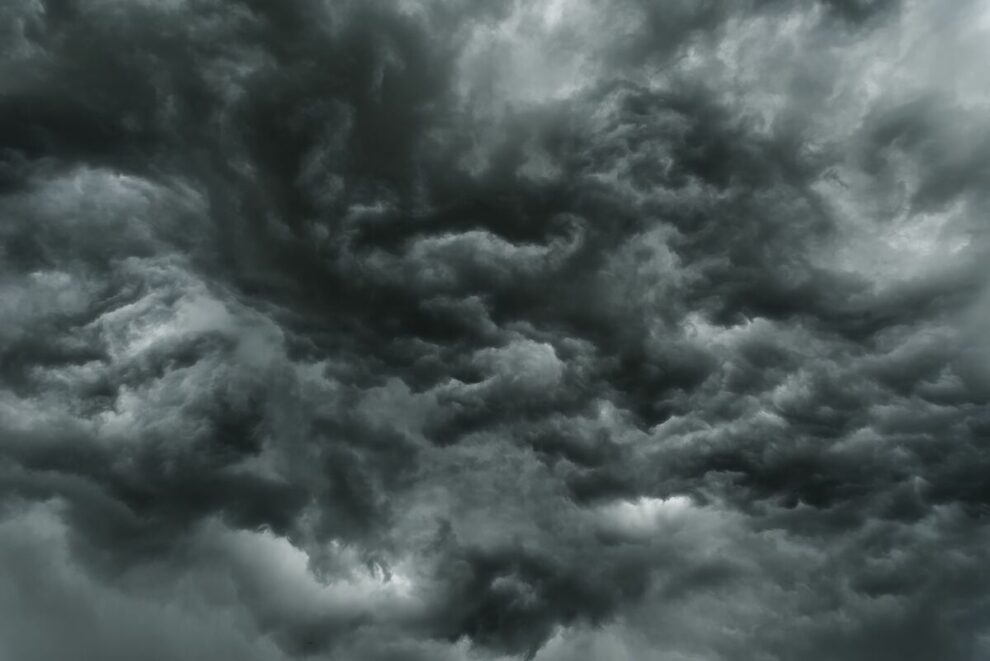Climate Cosmos and MSN forgot themselves earlier this spring and ran “5 Weather Anomalies That Have Shaped History.” They were “The Year Without a Summer” in 1816, which caused of all things a disastrous cooling, the Dust Bowl of the 1930s, The Little Ice Age from 1300 to 1850 which they even linked to reduced solar activity, and again conceding that cooling was bad, Hurricane Katrina in 2005 which hardly seems historic though it was bad, and the Indian Monsoon Failure of 1876-78, a classic piece of hydrological/climate whiplash you just can’t blame on CO2. Not only that but the Daily Mail ran a story, and MSN shared it, headlined “Climate change is NOT the main cause of floods, scientists say”. Which might seem blindingly obvious but given the current state of debate it’s actually a welcome insight.
While we’d still like to see “some scientists say”, the piece itself starts strongly and on point:
“Climate change is usually blamed for today’s wild floods – including the extreme deluge in Spain last year. But despite the common narrative, recent flooding events cannot solely be attributed to climate change, scientists say. Ancient floods going back 8,000 years dwarf modern flooding events which are mistakenly described by some as ‘unprecedented’, they reveal. Study author Professor Stephan Harrison at the University of Exeter said recent floods are not exceptional if we look further into the past. ‘In recent years, floods around the world – including in Pakistan, Spain and Germany – have killed thousands of people and caused enormous damage,’ he said. ‘Such floods are seen as “unprecedented” – but if you look back over the last few thousand years, that’s not the case. In fact, floods we call unprecedented may be nowhere near the most extreme that have happened in the past.’”
The Telegraph also ran a sympathetic item on that study including the methodology that went so far as to quote Harrison that “We said clearly, a few years ago, the climate modeling community have got it wrong”. Unfortunately he then covered his grant by saying the study showed that if floods could be that bad naturally, “If you then add the human component, then the floods get even more massive” except actually.
Still, these two examples show that it can be done. And indeed on this major point about there being nothing new about sudden changes in weather, including from wet to dry, vice versa or there and back again, the actual AP story is more cautious than the Flipboard hype. It says:
“Madrid got more rain in the first three weeks of March than any month since records began in 1893, said Rubén del Campo, a meteorologist and spokesperson at AEMET. But weather swings are a fact of life in Spain.”
And as we’ve said before, anyone with statistical training or just understanding will realize that especially in a place known for unstable weather, the odds of some place or another getting more rain in a month than it has in just over a century in any given year are quite high. (That the story purports to show the reservoir in Vilanova de Sau on a very dry Friday in January and a wet Monday in March of 2024, but a church tower jumps round between them, is a minor annoyance.) But it gets worse.
The AP piece also says:
“Climate change is likely making Spain’s fluctuations more intense, climate scientists say. Around the world, rising temperatures stoked by climate change are speeding up the hydrological cycle in which water moves between Earth and the atmosphere. That is triggering more extreme weather, such as prolonged droughts and intense rainfall, climate scientists say. A warmer atmosphere can also hold more water, about 7% more for every degree Celsius, scientists say. That means when it does rain, it’s more likely to be heavy.”
However climate change isn’t making anything anything because it’s a statistical description of changes in weather conditions not a causal force. And while this theory that every degree Celsius means 7% more water, despite the “scientists say”, not only can’t explain why there’d be drought, as we mentioned last July the notion that “specific humidity”, the actual water content of the air, does not move in lockstep with “potential maximum humidity” in real life, whatever it may do in computer models or newspaper screeds.
Also, while we’re on the subject of data, what do they mean “likely”? Of course a network can get clicks with “2+ Hours Of The World’s Most Extreme Weather”. And anyone with a keyboard can type “As our planet’s climate continues to change, we are witnessing more frequent and intense weather events”. Witnessing possibly being the key word since as Bjorn Lomborg has noted, in a world where so many people have cellular telephones with built-in cameras almost any bad weather anywhere is probably going to get noticed and recorded. But if you’re doing a news story about a scientific study, you need a bit more.
Surely we have at least some data on whether it’s actually true that Spain’s fluctuations are getting more intense. If we don’t, then you can’t say “likely” and if we do, you should present it. Unless of course you’re just into yelling to scare people.



So the feedback loops are driven by more water vapour in the atmosphere, but the warmth in 2023-24 was not driven by more water vapour in the atmosphere due to the Hunga Tunga underwater volcano? It’s kind of like greenhouse gases trapping heat from the sun causing global warming but changes in solar output have no effect.